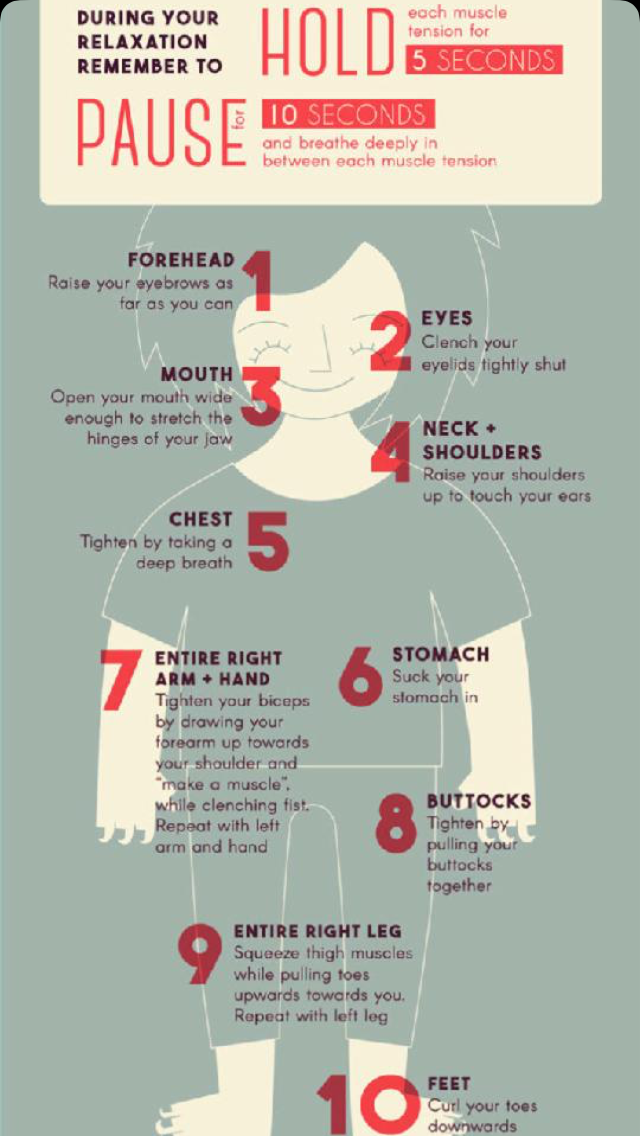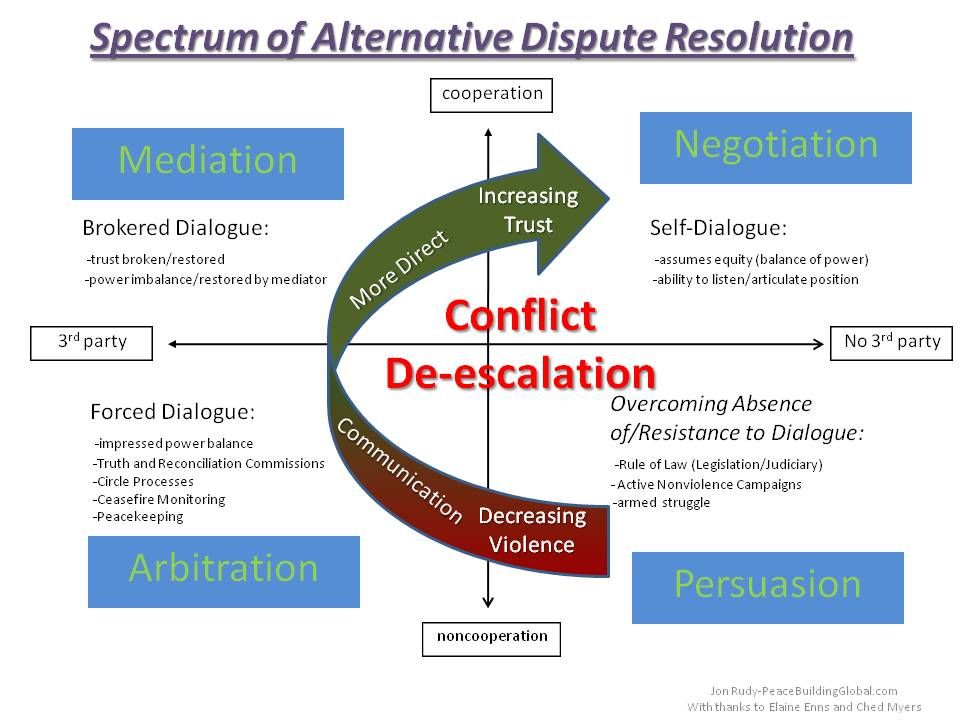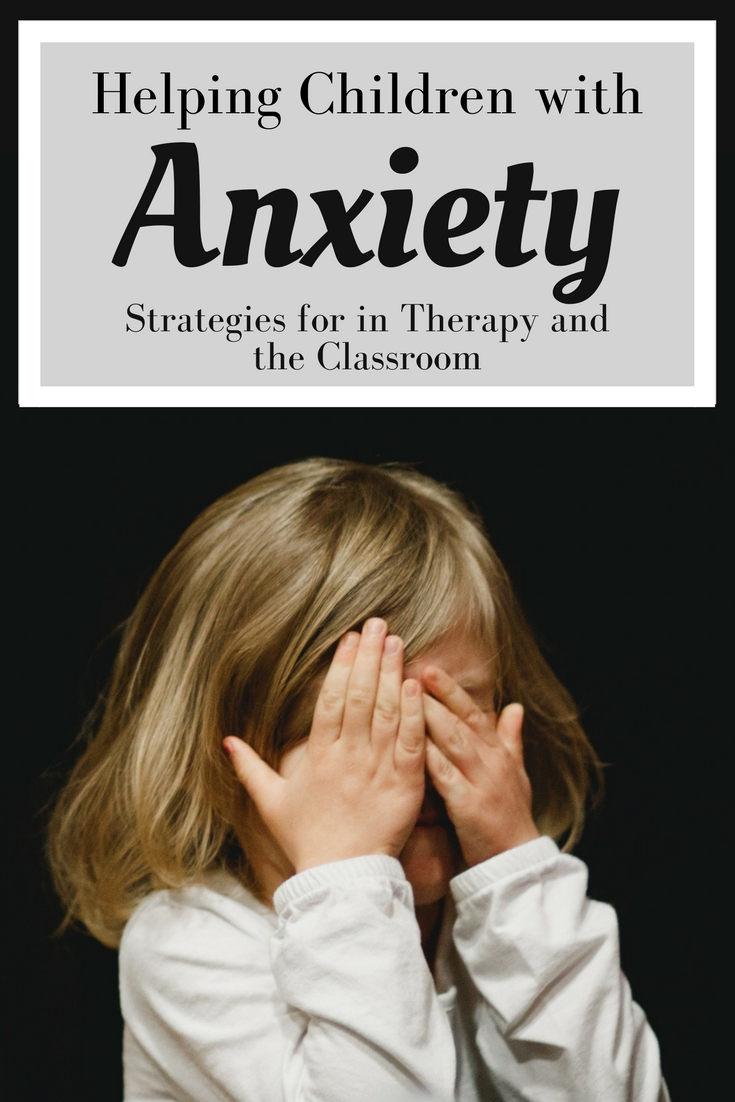Have i asperger
Top 10 signs you have Aspergers
A humorous look at Aspergers. Englebert updated this blog post in 2021 here.
by Englebert Lau
What are the top 10 signs you have Asperger’s Syndrome?
1) You have inflexible routines
Girl: “Let’s go watch a movie tonight.”
Guy: “I can’t, I have to play hockey.”
Girl: “You play hockey every Friday night. Why can’t you change your routine?”
Guy: “Good habits are important. Do you know what happens if I skip hockey to watch a movie tonight? Next week, I’ll skip hockey because you want to go shopping. The week after that, I’ll have to skip hockey because you want to paint pottery. After years of no exercise, I’ll die early and overweight. Is that what you want?”
Girl: “Oh my god, you’re crazy.”
2) You have trouble displaying emotion
[Emotion #1: happy] Girl: “Oh my god, you just won the lotto. Why don’t you look happy?”
Guy: “I am happy. I can pay off my mortgage faster. Look, I’m smiling. Doesn’t that mean I’m happy?”
[Emotion #2: sad] Girl: “I’m sorry to hear that Calgary lost to Toronto. Are you okay?”
Guy: “I’m sad. Look, I’m not smiling. Doesn’t that prove I’m sad?”
[Emotion #3: angry] Girl: “I’m so sorry that I broke your Batman DVD.”
Guy: “I’m angry. Do I need to snap one of your shoes in half to prove that I’m upset?”
3) You have trouble figuring what is appropriate in social situations
Guy: [Gives flimsy hug] Girl: “Why is your hug so weak? Are you afraid of women?”
Guy: [Gives firm hug] Girl: “Why are you squeezing me so tightly? Stop choking me, you weirdo!”
4) You lack empathy
Girl: [Crying] Guy: “What’s wrong?”
Girl: “My boyfriend just dumped me.”
Guy: “Would you like a Kleenex?”
Girl: “What’s wrong with you? Haven’t you ever loved someone for years, then watched them walk away and then rip out your heart? Why can’t you show any emotion?”
Guy: “But I’m having a good day. The Calgary Flames won the hockey game. Why do I have to pretend that I’m sad just to make you feel better?”
The Calgary Flames won the hockey game. Why do I have to pretend that I’m sad just to make you feel better?”
5) You know way too much information about a single topic
Girl: “What’s the name of the girl who plays Daenerys on Game of Thrones?”
Guy: “Emilia Clarke.”
Girl: “How old is she?”
Guy: “She’s 28, born on May 1st, 1987.”
Girl: “Who is she going out with?”
Guy: “She broke up with Seth MacFarlane in March 2013.”
Girl: “Why do you know this stuff?
6) You have trouble figuring out when to lie
Girl: “Does this dress make me look fat?”
Guy: “Yes.”
Girl: “What the hell is wrong with you?” [Throws shoe at guy] Guy: “Do you want me to lie, or tell the truth? It’s one or the other. You can’t have both!”
7) You have trouble describing basic emotions
Girl: “So how would you describe yourself when you’re angry?”
Guy: “I change the pitch of my voice.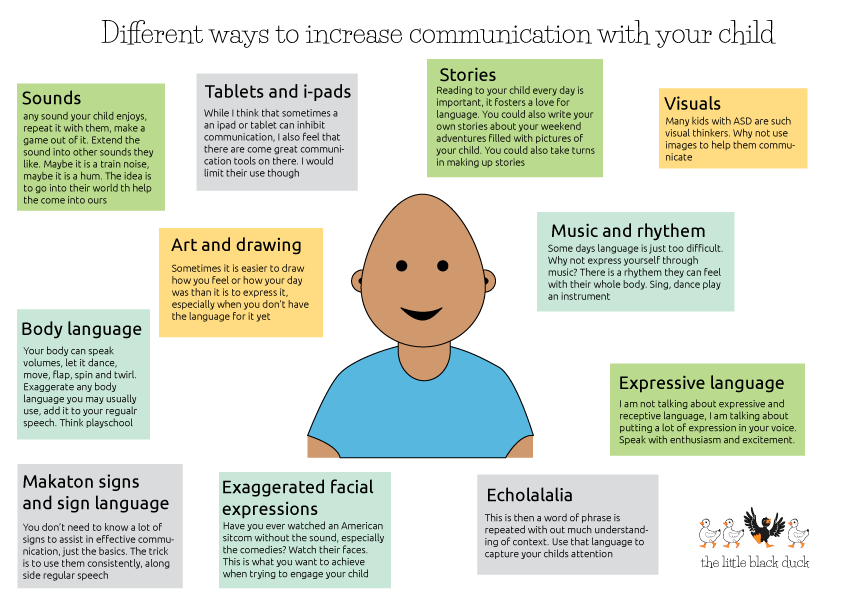 People who yell are usually upset.”
People who yell are usually upset.”
Girl: “But at a hockey game, if the Flames score a goal, people yell because they’re happy.”
Guy: “Emotions are unreliable. Why do you always ask how I feel? Why can’t you focus on reliable information, like facts?”
Girl: “You’re weird. You’re an emotionless robot.”
8) You care way too much about organizing stuff
Girl: [Puts DVD back on shelf] Guy: “What the hell are you doing?”
Girl: “I’m putting your Batman Blu-Ray back on your shelf. What’s your problem?”
Guy: “Did you go to kindergarten? Alphabetical order is “A”, then “B”, then “C”. You almost put Batman on my shelf after Community. Good lord. How can I find a DVD when you’re messing up my stuff?”
Girl: “Dude, relax. It’s just a Blu-Ray. It’s no big deal.”
Guy: “Sure. Just like the alphabet and kindergarten are no big deal. Without kindergarten, we wouldn’t be able to have this conversation!”
9) You have trouble understanding other people’s emotions
Girl: “Wasn’t Romeo and Juliet the best story every written? Didn’t the story make you feel really sad?”
Guy: “I didn’t feel anything.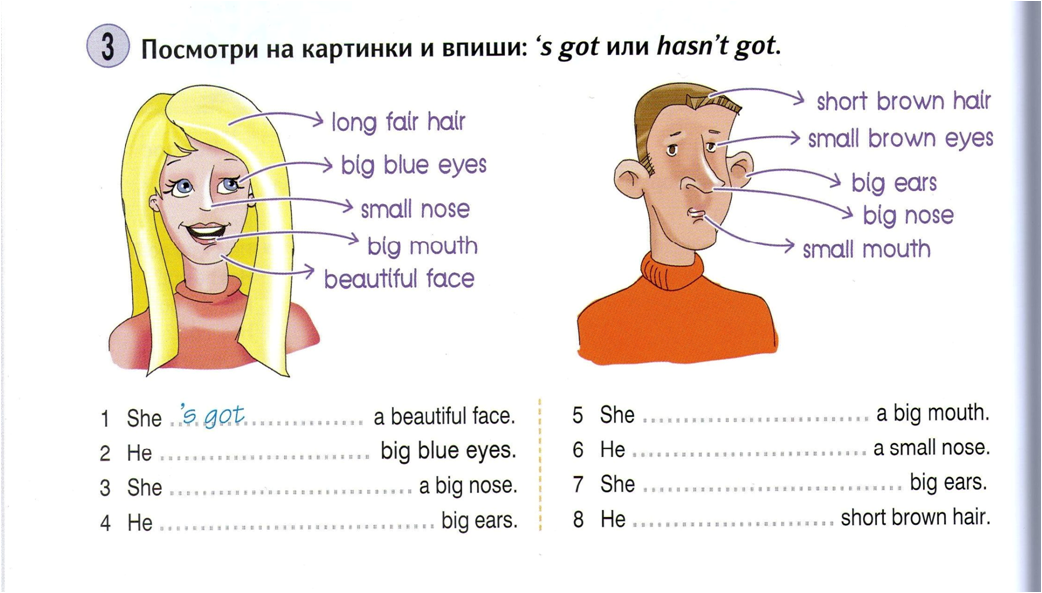 All I learned from Romeo and Juliet is that it’s important to develop technology.”
All I learned from Romeo and Juliet is that it’s important to develop technology.”
Girl: “What’s wrong with you? Romeo and Juliet both gave up their lives because they were in love. They made the ultimate sacrifice for each other!”
Guy: “Can you imagine if they lived in 2015? All they had to do was send each other one lousy text message. Bam! Problem solved. No one had to die.”
Girl: “Oh my god. You’re an emotionless robot who doesn’t understand romance.”
Guy: “Hey, it’s not my fault that they didn’t invent cell phones in the Middle Ages.”
10) You need other people to provide clear schedules and expectations
Girl: “We should hang out some time.”
Guy: “What does that mean? What day do you want to hang out? How long do you want to hang out? What do you want to do? Can you be more specific? What does hanging out mean? Does that mean doing something that you want to do? Do I have to hang out with new people, which will cause me to analyze what is acceptable social behaviour, which changes from one person to the next person? Why can’t you define anything clearly?”
Girl: [Sighs]
* * *
Englebert Lau was diagnosed with a mild case of Asperger’s Syndrome at the age of 30. The majority of Englebert’s professional career has been working in Information Technology as a Business Analyst. Englebert created http://www.hitchhikeraspie.com. The purpose of this website is to share a light-hearted perspective on Asperger’s Syndrome. Englebert would like to increase exposure about Asperger’s Syndrome for a wide range of people, by providing examples of how it affects his everyday life. Englebert loves TV series and movies, especially the HBO Game of Thrones series.
The majority of Englebert’s professional career has been working in Information Technology as a Business Analyst. Englebert created http://www.hitchhikeraspie.com. The purpose of this website is to share a light-hearted perspective on Asperger’s Syndrome. Englebert would like to increase exposure about Asperger’s Syndrome for a wide range of people, by providing examples of how it affects his everyday life. Englebert loves TV series and movies, especially the HBO Game of Thrones series.
Artwork: Debbie Denenburg – Giant Purple Planet
Note:
The Art of Autism realizes many people come to this page with the questions, Do I have Autism? or, Do I have Aspergers? We recommend diagnosis by a professional. However, there are a couple of popular online quizzes that may give you an indication if you might be on the spectrum:
- The Aspie Quiz
- Autism Spectrum Quotient online test
See also:
- Top Ten Signs a Girl is Bored by Englebert Lau
- Females and Aspergers: A Checklist by Samantha Craft
Asperger's Syndrome: Symptoms, Diagnosis and Treatment
Nationwide Children’s Hospital
Overview
Signs & Symptoms
Causes
Diagnosis
Treatment
Seeking Help
What is Asperger’s Syndrome?
Asperger’s Syndrome is a developmental disorder. Young people with Asperger’s Syndrome have a difficult time relating to others socially and their behavior and thinking patterns can be rigid and repetitive.
Young people with Asperger’s Syndrome have a difficult time relating to others socially and their behavior and thinking patterns can be rigid and repetitive.
Generally, children and teens with Asperger’s Syndrome can speak with others and can perform fairly well in their school work. However, they have trouble understanding social situations and subtle forms of communication like body language, humor and sarcasm. They might also think and talk a lot about one topic or interest or only want to do a small range of activities. These interests can become obsessive and interfere with everyday life, rather than giving the child a healthy social or recreational outlet.
Boys are three to four times more likely than girls to have Asperger’s Syndrome. Most cases are diagnosed between the ages of five and nine, with some diagnosed as early as age three.
What Is the Difference Between Asperger’s Syndrome and Autism Spectrum Disorder?
The name for Asperger’s Syndrome has officially changed, but many still use the term Asperger’s Syndrome when talking about their condition. The symptoms of Asperger’s Syndrome are now included in a condition called Autism Spectrum Disorder (ASD). ASD is now the name used for a wide range of autism-like disorders. Some providers may still use the term Asperger’s Syndrome, but others will say “ASD – without intellectual or language impairment.” These two syndromes are, for the most part, the same.
The symptoms of Asperger’s Syndrome are now included in a condition called Autism Spectrum Disorder (ASD). ASD is now the name used for a wide range of autism-like disorders. Some providers may still use the term Asperger’s Syndrome, but others will say “ASD – without intellectual or language impairment.” These two syndromes are, for the most part, the same.
What are the Symptoms of Asperger’s Syndrome?
Children with Asperger’s Syndrome exhibit poor social interactions, obsessions, odd speech patterns, limited facial expressions and other peculiar mannerisms. They might engage in obsessive routines and show an unusual sensitivity to sensory stimuli.
While all children with Asperger’s Syndrome are different, what sets them apart are their unusual social skills and obsessive interests. For a child with Asperger’s Syndrome, you may see one or more of the following symptoms:
- Inappropriate or minimal social interactions
- Conversations that almost always revolve around themselves or a certain topic, rather than others
- Not understanding emotions well or having less facial expression than others
- Speech that sounds unusual, such as flat, high-pitched, quiet, loud, or robotic
- Not using or understanding nonverbal communication, such as gestures, body language and facial expression
- An intense obsession with one or two specific, narrow subjects
- Becoming upset at any small changes in routines
- Memorizing preferred information and facts easily
- Clumsy, uncoordinated movements, including difficulty with handwriting
- Difficulty managing emotions, sometimes leading to verbal or behavioral outbursts, self-injurious behaviors or tantrums
- Not understanding other peoples’ feelings or perspectives
- Hypersensitivity to lights, sounds and textures
Children with Asperger’s Syndrome often show no delays in their language development. They are likely to have good grammar skills and an advanced vocabulary, but they also tend to be very literal. They have trouble using language in a social context.
They are likely to have good grammar skills and an advanced vocabulary, but they also tend to be very literal. They have trouble using language in a social context.
There may be no obvious delay in their cognitive development. Children with Asperger’s Syndrome can have problems with attention span and organization, but they usually have average intelligence.
What Causes Asperger’s Syndrome?
The causes of Asperger’s Syndrome are unknown. Genetics and brain abnormalities may be involved.
We do know that Asperger’s Syndrome is NOT the result of a child’s upbringing or poor parenting. Asperger’s Syndrome is a neurobiological disorder, meaning it is just a part of the child’s brain development, whose causes are not fully understood.
How is Asperger’s Syndrome Diagnosed?
As mentioned above, Asperger’s Syndrome is no longer diagnosed as a condition in and of itself. It is part of the range of conditions included in Autism Spectrum Disorder.
If a parent is concerned about a child’s social development, unusual language patterns, and odd behaviors, a pediatrician should be consulted.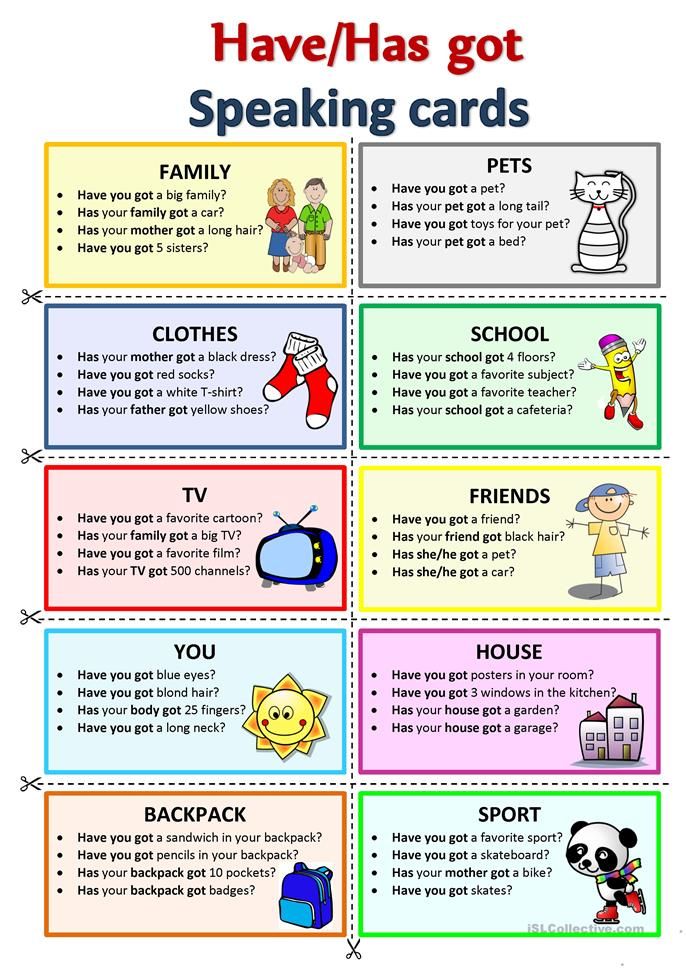 The pediatrician can determine if the child should be seen by a specialist, such as a developmental pediatrician, psychologist, or other clinician who is familiar with ASD.
The pediatrician can determine if the child should be seen by a specialist, such as a developmental pediatrician, psychologist, or other clinician who is familiar with ASD.
Testing and assessment usually involve a team of medical and psychological professionals. The specialists will ask the parent many questions about the child’s development and current skills and problems. They will also interact with the child and conduct assessments to evaluate what symptoms the child shows when interacting with others. They may also assess the child’s language and intellectual abilities. A medical doctor might ask questions or order tests to make sure there are no other medical concerns for the child.
Asperger’s Syndrome (also known as “Autism Spectrum Disorder - without intellectual or language impairment”) may be difficult to diagnose. Sometimes this condition can be confused with other conditions such as Attention Deficit Hyperactivity Disorder (ADHD), Obsessive Compulsive Disorder (OCD) or Oppositional Defiant Disorder (ODD). Making sure to evaluate the child’s social and communication skills, their patterns of behavior and thinking, and how these symptoms have developed over time will help the assessor provide the correct diagnosis.
Making sure to evaluate the child’s social and communication skills, their patterns of behavior and thinking, and how these symptoms have developed over time will help the assessor provide the correct diagnosis.
How is Asperger’s Syndrome Treated?
Because each case is different, treatment plans must be built according to each child’s needs. They should be adjusted over time as those needs change.
Treatment of Asperger’s Syndrome usually includes:
- Social skills training
- Behavior supports
- Cognitive behavioral therapy
- Parent education and training
- Speech-language therapy
- Occupational therapy
- Special education classes
- Medication
At present, there is no “cure.” By learning to cope with the symptoms and pick up on social cues, a child can learn to overcome some of the challenges he faces. With help, parents can learn how to best support their child. People with Asperger’s Syndrome can do well in school and go on to be contributing members of their community.
When Should I Seek Help?
Treatment should be done while a child's brain is still developing. If you notice signs of Asperger’s Syndrome or any of the symptoms of Autism Spectrum Disorder in your child, see your pediatrician. She or he can refer you to a mental health expert who specializes in diagnosing this type of disorder.
Related Conditions
- Autism Spectrum Disorder
Show More
You Might Also Be Interested In
Blog
Common Co-diagnoses Occurring with Autism Spectrum Disorder
People who have autism spectrum disorders (ASD) may also have additional health diagnoses (co-occurring conditions). Learn more about these common conditions.
Learn more about these common conditions.
Blog
Autism Awareness Day: A Time for Acceptance and Action
April 2 marks the 11th annual World Autism Awareness Day – a day to recognize people living with autism.
Blog
Is Melatonin Safe for Kids?
For some children who need help falling asleep, melatonin has become a commonly recommended supplement. Melatonin is safe, effective and widely available.
All my life it was difficult to communicate with people, but it turned out that I have Asperger's syndrome
Anna has been working as a librarian for many years, lives in her small apartment with two sick cats - she caught one of them in the river.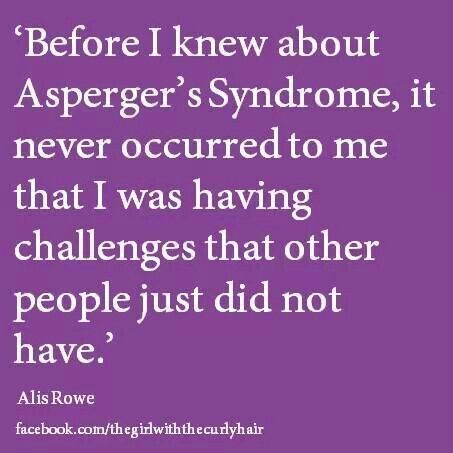 Anna loves animals and people, someone always lives in her house: either hippies or unrecognized street musicians, or poor students who have come to the big city to study.
Anna loves animals and people, someone always lives in her house: either hippies or unrecognized street musicians, or poor students who have come to the big city to study.
Give me words!
– With age, I got a clear feeling that all people know something that I don’t know, but they can’t explain it to me because it’s like walking or breathing – how can you explain it? For example, it would be difficult to explain to a rational creature that has no legs, but only fins, how it is to walk, or to explain to the inhabitant of the sea how to breathe air ... This is intuitively clear to everyone, but it seems incomprehensible to me. For most people it's like breathing, but for me it's like playing the piano. nine0003
How was it as a child? For example, I read in a book that D’Artagnan called out to some musketeer, and I don’t understand exactly how he called out to him, with what words. Or: "She thanked him for his help." As?! Give me words! That is, the absence of words does not interfere with my reading, but in a live conversation it does.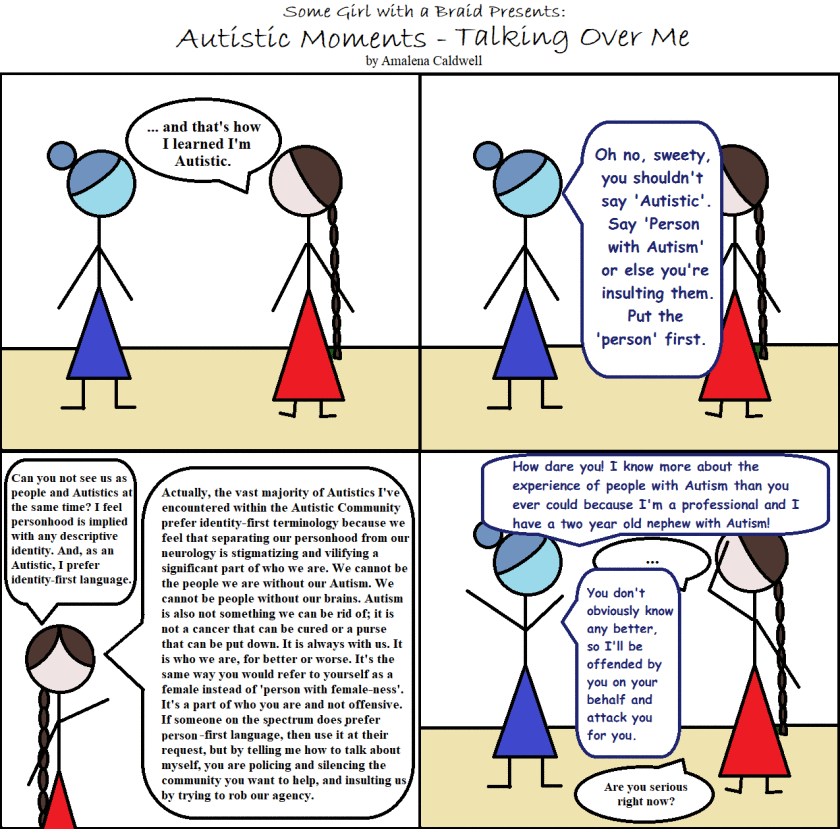 Or I read a dialogue from which I understand that if they tell me this, I will answer like this. But will they say exactly what is written in the book to my remark in life? Is not a fact. And I had to juggle a huge number of blanks! And it happened that I stupidly repeated what people already said or did in front of me. nine0003
Or I read a dialogue from which I understand that if they tell me this, I will answer like this. But will they say exactly what is written in the book to my remark in life? Is not a fact. And I had to juggle a huge number of blanks! And it happened that I stupidly repeated what people already said or did in front of me. nine0003
I could, not really understanding which facial expression corresponds to which situation, just in case, copy my grandmother's facial expression, but it turned out to be inappropriate. What caused the angry reaction of the same grandmother - there is nothing, for example, to smirk when everything is serious.
Or, in early childhood, when I heard my grandmother complaining about feeling unwell, without any second thought, I said: “Nothing hurts you!” They tried to explain to me that they don’t answer like this in these cases, and I realized that I had blurted out something wrong, but I didn’t understand why. I thought that if they tell me when I get a bruise, “nothing, it will pass!”, And I can do it, because I wanted to say that everything is not so bad, I wanted to cheer up my grandmother. nine0003
nine0003
In the second grade I met a girl, we somehow mutually decided that we would be friends. That is, she says: "Let's be friends!" And I began to think about how she imagines friendship, since I already began to understand that there is some difference between what I read in books and what happens in real life. And I feel that I can’t formulate it properly, but I have to ask ... and I ask: “What do you need from me?” She: "What-oh-oh?!" Then I realized that I had said the wrong thing ... but for a very long time I did not understand what exactly was “wrong”. nine0003
And so it was with the class teacher and teachers.
I had friends: I always found someone who communicated with me individually more or less normally, and hid behind him. At the university I met a young man - we got married, and a few years later we divorced. I remember that in my student period, when we moved from the building of one faculty to the building of another, out of fear I clutched at him with a stranglehold, probably even hurt him.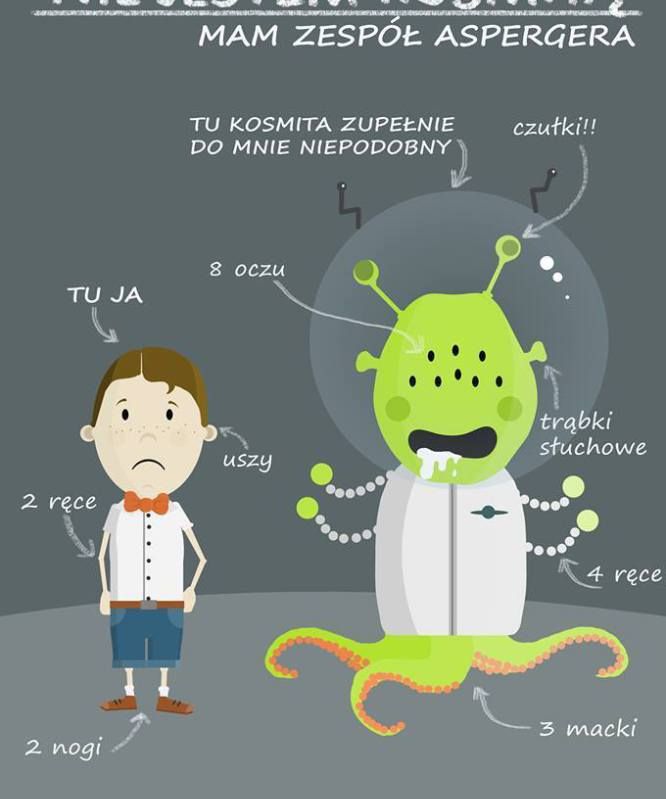 This is because from the space I mastered, where I feel entitled to be, I know people and things and count on support, I had to move to an alien, unknown to me personally space, where I don’t know what to expect from others, and therefore it’s scary. nine0003
This is because from the space I mastered, where I feel entitled to be, I know people and things and count on support, I had to move to an alien, unknown to me personally space, where I don’t know what to expect from others, and therefore it’s scary. nine0003
In every new place, in every new team, at first I am afraid that something will happen that I will not be able to cope with. I didn't know how to talk to people, I didn't know how they would react to my words. Perhaps, because of my peculiarities, someone had conflicts with me that I did not notice.
I can miss the moment to say hello, but say "Hello!" after two or three phrases already spoken in the dialogue, it is somehow strange.
Quite often I use mnemonic techniques related to memorization. Still, I have a university behind me: there, like it or not, you learn all sorts of mnemonic techniques. Another feature is that I quickly get tired of actions consisting of more than one step. nine0003
nine0003
In the area of relationships, I always need specific, single examples, samples: I focus on them. And if I need to quickly sketch out a memo, for example, when working with a literary text, then I can draw it ... For example, during testing, when I was asked to remember a number of abstract concepts, I designated situations from my favorite books that illustrate those or other relationships. For example, for “friendship”, I had Maedhros and Fingon drawn in the episode where one takes the other off a cliff (talking about the characters of J. R. R. Tolkien’s book “The Silmarillion” - I. L.)
After my grandmother died, I moved into her apartment. Someone always lived with me: girlfriends, acquaintances of girlfriends, and it was good, a certain community was taking shape, and I felt that this suited me more than a family. And when I lived alone, I found that I was not able to go around the house.
Relatives do not know about my syndrome
One day I was sitting and chatting about my difficulties with a friend who has a degree in psychology.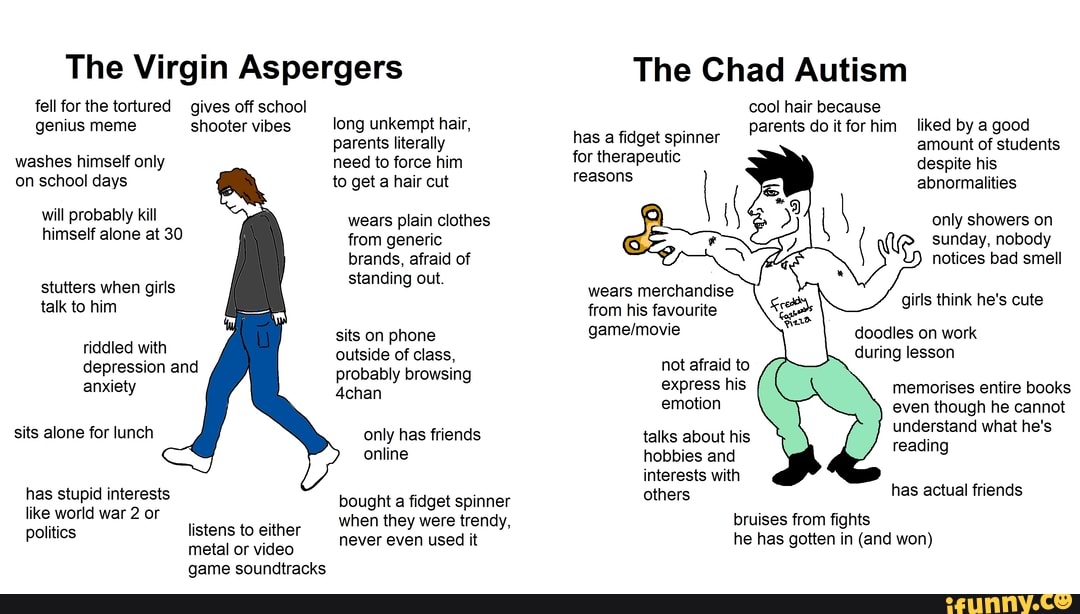 A friend, listening to me, suddenly said: “Maybe you have Asperger's? Not only what you say, but also how you communicate, is similar to the manifestations of this syndrome. At that time I didn't know what it was. But after the words of her friend, she thought about it, decided that she needed to go to the doctor. nine0003
A friend, listening to me, suddenly said: “Maybe you have Asperger's? Not only what you say, but also how you communicate, is similar to the manifestations of this syndrome. At that time I didn't know what it was. But after the words of her friend, she thought about it, decided that she needed to go to the doctor. nine0003
Now I call my oddities - features, although I was brought up without considering these features. And both peers and adults communicated with me without taking into account these features.
I still have to force myself to communicate with people.
I had a friend (unfortunately, she died) with whom I could communicate without fear that she would misunderstand me. Because if she did not understand, or if she thought that I said something unpleasant, she simply asked again. What happiness! And if I didn’t understand her, I could also ask her again as many times as I wanted. This was the only person with whom I communicated without all internal restrictions, so without her I was very, very orphaned. nine0003
nine0003
My relatives don't know about my diagnosis. Mom knows about my trips to a psychotherapist, does not approve, but somehow puts up - like "whatever the child amuses herself with." Somehow, she believes that there is no sense in this, but you just need not to dissolve, to control yourself.
Did I get better after seeing a doctor? I don't see any changes in myself. But the atmosphere in society has a positive effect, and it has changed. Already less than this “I will not surrender to a psychiatrist for nothing” and the idea that all psychiatry is by definition punitive ... What I am a little afraid of is still what they learn at work. And I'm always good with myself. nine0003
I'm not Gagarin
It happens that, for example, I can cook borscht, pea soup, salad, and also bake meat in one evening. And I can't cook anything. Deadlines help with difficult situations. For example, before the guests arrive, you clean up so that the guests have an elementary place to sit.
Sometimes they try to help me: do something around the house, with repairs, etc., but it turns out that a person does it for himself, and not for me. Look, do you see the bottle? You don't have to throw it away. This is a special bottle, which, being light - plastic, square, half a liter, can also withstand boiling water. I saved this cat thanks to this bottle: I took boiling water in the veterinary clinic, wrapped it in a diaper, and the cat warmed up on the road. After all, I picked up a cat in the river, she had hypothermia. nine0003
Because there are people with similar problems, it's easier for me - I'm not Gagarin, I can't be the first and without looking back make some discoveries, even personal ones.
"He did the impossible because he didn't know it was impossible" - that's not about me. You look to the right, to the left and you understand that people somehow solve similar problems. And you have hope that you can too. You sit in a swamp, you don’t know what to do, but you see: “Here is a man who has found a way, this way does not suit me, but maybe I will find my own.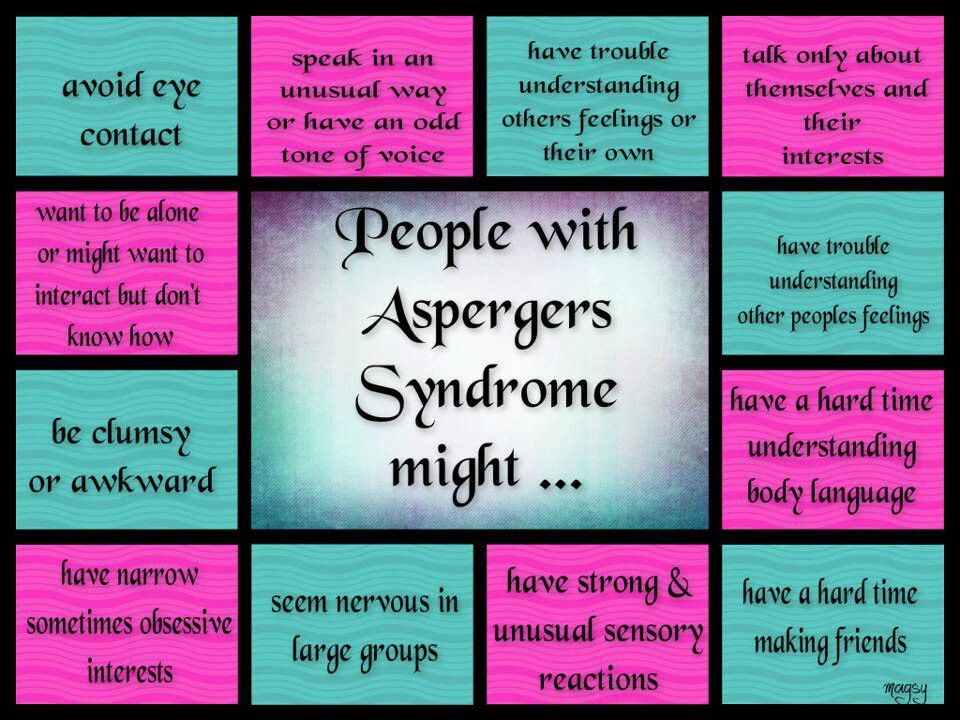 ” nine0003
” nine0003
The psychologist who is doing CBT with me now, when I ask what we are doing, answers: “We are doing adaptation. You've been maladjusted. For example, you do not notice how you help people. So you said that you do not interfere in the studies of a student who was allowed to live with you. And you yourself tell how they helped him with the essay. Although I don't really think it's that much of a learning aid.
In childhood, people with Asperger's Syndrome are often child prodigies
Psychiatrist, psychotherapist, candidate of medical sciences talks about the features of Asperger's syndrome Ivan Martynikhin :
– Some time ago, the scientific community was of the opinion that Asperger's syndrome is a separate disorder, different from autism. Later, nevertheless, the terms "childhood autism", "Asperger's syndrome" and "high-functioning autism" (which is practically a synonym for Asperger's syndrome) were combined into one concept - "autism spectrum". And now we're talking about more severe and milder autism. Asperger's Syndrome is a milder variant of autism. nine0003
And now we're talking about more severe and milder autism. Asperger's Syndrome is a milder variant of autism. nine0003
"Light" is, of course, a comparative characteristic. The two main criteria for diagnosing autism are complex social communication and a tendency to repetitive behavior. This unites all variants of autism. But in a severe form, a person may not notice other people at all, so often such people do not even develop speech - they do not understand social signals.
In children with mild forms of autism such as Asperger's syndrome, the lack of complex social communication is not yet obvious. Therefore, Asperger's syndrome is often diagnosed already in adults - after all, in childhood, many of them rather pleased their parents. nine0003
These children start talking early, show a good memory in their areas of interest - for example, some like languages and learn several languages, some do well in mathematics, that is, they seem to be geeks.
And in middle and high school they have communication problems with the team, with teachers, in adult life - with the work team, in family life. A person with Asperger's Syndrome can suffer greatly because they fail to build subtle partnerships. His subjective discomfort can be much greater than that of a non-verbal person with a severe form of autism, who, in principle, does not compare himself with other people. nine0003
It happens that people with Asperger's syndrome adapt to the work community. Most often they are programmers, mathematicians, linguists. This may be a very high-profile specialist who enjoys authority, but in a situation where complex communication is needed, he has problems.
In IT companies, specialists are evaluated according to the criteria of hard skills and soft skills: the first is professional skills, the second is the ability to communicate in a team, work in a team, quickly understand requirements, and the like. nine0003
And it turns out that a person with Asperger's syndrome has good hard skills and poor soft skills. Some adapt to special conditions, and some cannot adapt in any way, despite a good education.
Based on world statistics, in Russia, as in other countries, a sufficiently large number of people with Asperger's syndrome should be diagnosed - according to the latest data, in the USA there are already more than 1 in 50 people. Rates in Europe and the US are now changing frequently as the threshold is lowered - more and more mild cases are being diagnosed. nine0003
And in Russia, according to 2019 data, only a few hundred people were diagnosed with Asperger's syndrome - out of a population of 140 million. I am collaborating with the Anton Is Here Foundation: we have already held four training courses for young psychiatrists. I hope that in connection with this, the diagnosis of Asperger's syndrome will improve. But so far, even in St. Petersburg, there may be only a few dozen doctors who can expertly make this diagnosis.
The ability to understand other people is a fairly complex skill, its development requires a lot of time and effort. And doctors are more likely to work not with Asperger's syndrome itself, but with complications arising from it - for example, with anxiety disorders, which occur in many people with autism due to some kind of social failure.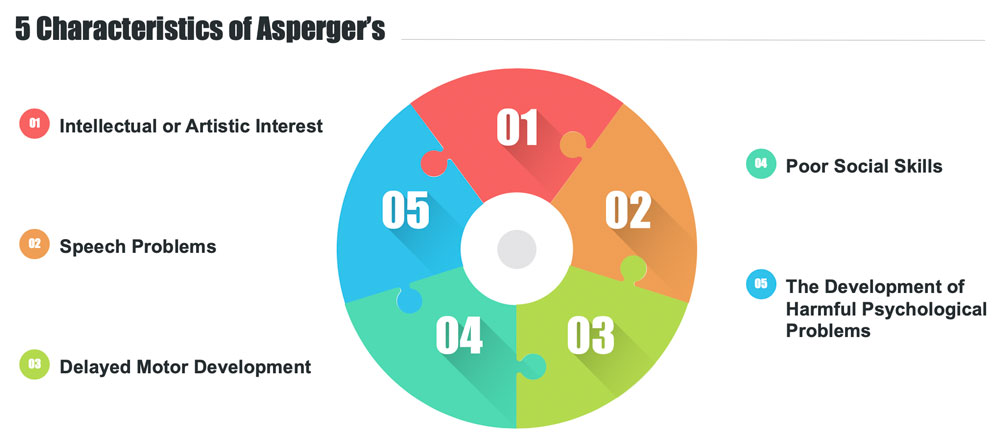 nine0003
nine0003
It is not easy to do something with Asperger's syndrome itself, but it is possible, and first of all, the patient himself should deal with this, and his relatives should help him - place him in a social environment, explain something. Of course, it must be training. There are no such trainings in St. Petersburg, but there are several online self-help groups for people with Asperger's syndrome, where they share with each other ways to adapt. But these are isolated cases, and very few people are involved in this.
As a rule, people have to learn on their own. I have several examples of how people with different behaviors have become much more competent in socialization. They went to schools of acting or public speaking, reading courses, and so gradually learned to express their emotions in a socially acceptable way, to understand other people, by the age of 30 or 40 learning what other people intuitively grasp at 14 years old - they immediately read the mood of the interlocutor, his emotions .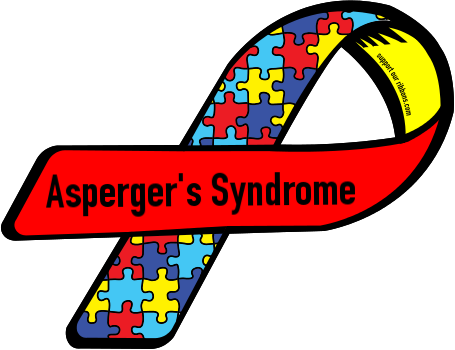 nine0003
nine0003
And people with Asperger's syndrome can come to this, but much later and through rational understanding, through intellectual effort. I know young men who begin to build relationships with the opposite sex by reading books, including those on psychotherapy, trying to figure out how the mental world of other people works.
Drawings by Varvara Grankova
Asperger's syndrome in adults: 12 signs0003
In some countries, this syndrome is no longer considered a separate diagnosis and is considered as a type of autism spectrum disorder. However, not all experts agree with this, and many people with this disorder see little in common with autism in their condition, since they do not have speech and cognitive impairments.
Be that as it may, this disorder seriously complicates a person's daily existence and can create problems in his professional and personal life. Here are some signs that often distinguish people with Asperger's Syndrome:
1. Unusual way of speaking. It may seem like you are talking to a computer: the interlocutor brings down a stream of facts at you without pausing and (almost) not listening to you. Sometimes people with this syndrome have an unusual timbre of voice.
Unusual way of speaking. It may seem like you are talking to a computer: the interlocutor brings down a stream of facts at you without pausing and (almost) not listening to you. Sometimes people with this syndrome have an unusual timbre of voice.
2. Difficulties with non-verbal communication. You may notice that your interlocutor almost does not use gestures, and his facial expressions are not rich.
3. Lack of eye contact. It's not that your interlocutor can't make eye contact with you, it's just that they don't feel the need for eye contact. If you draw his attention to this, he may try not to look away and even go too far, looking at you too intently. nine0003
4. Problems with etiquette. Such a person may seem rude or ill-mannered, but in fact he simply lacks intuition telling how to behave correctly. For example, he may turn away and go about his business without listening to what you say to him, or invite you to dinner and not come, or open the door when you arrive, look at you and, without greeting, go into the house.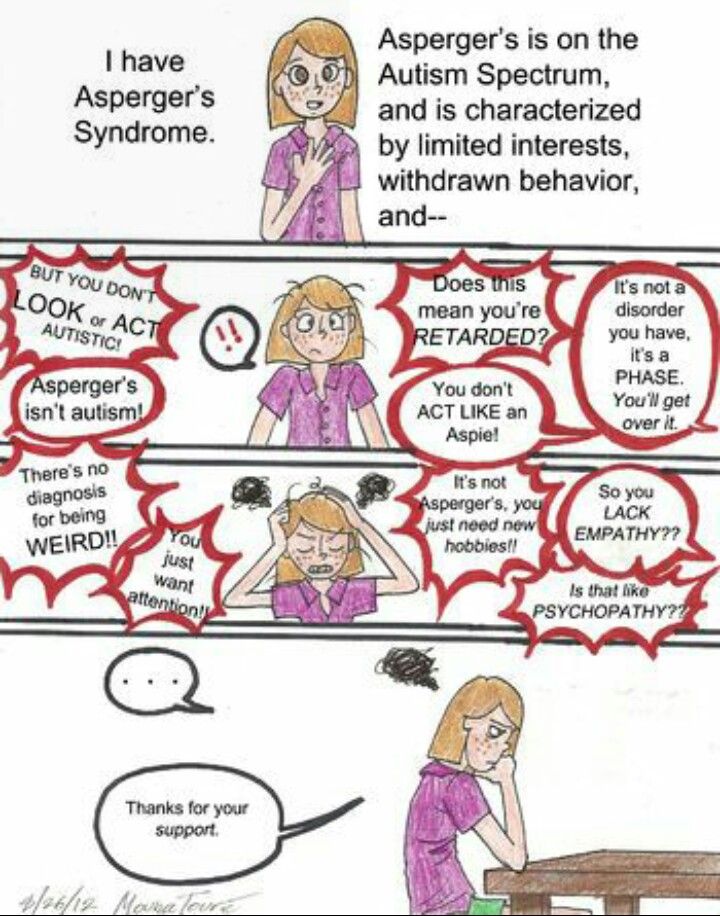 The rules of good manners, which are accepted in society, are alien to him.
The rules of good manners, which are accepted in society, are alien to him.
5. Obsessive focus on one topic (often unusual). nine0006 He may collect things that others would not think of collecting, he may have an unusual hobby, he may show an obsessive interest in some person. And talk non-stop about the subject of your passion, not noticing how it tires your interlocutors. Sometimes he suddenly switches to another hobby. If he has lost interest in the person he adored, he will suddenly become cold with him.
6. Inability to understand the feelings of another person. They are often seen as cold, unfeeling, lacking in empathy. But it's not that they're incapable of empathy or unwilling to show kindness. They just have less emotional experiences than others. Often they cannot understand why other people are so upset or excited, and then they prefer to go away and think about it alone. nine0003
7. Poor communication skills. Sometimes they talk non-stop about their own, not noticing that others are offended or they are no longer interested in listening. And when they don't like someone, they abruptly end the conversation. Such behavior from the outside seems absurd.
And when they don't like someone, they abruptly end the conversation. Such behavior from the outside seems absurd.
8. Inability to share feelings. Does it surprise you when a well-known person at a meeting does not even ask how you are doing, and does not tell about his success himself? But it is unusual for people with Asperger's syndrome to share feelings and impressions. nine0003
9. Black and white thinking. Having once come to an opinion or decision, they will stick to it, in spite of any arguments. It is difficult for them to accept that other people have a different point of view.
10. Lack of flexibility. Plans changed at the last minute? For a person with Asperger's, this is a test fraught with psychological overload, he is not ready for impromptu. He can be upset by mere trifles, seemingly not worthy of attention, or by something that is unusual for him. nine0003
11. Following routine. Structure and established rules are extremely important to him.
